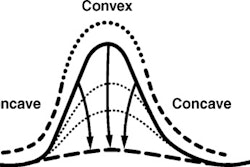
NEW YORK (Reuters Health), Jun 3 - Vaginal brachytherapy is as effective as external-beam radiation at preventing the recurrence of higher-risk endometrial cancer and is associated with significantly less treatment-related toxicity and much better quality of life, according to a multicenter Dutch study reported Saturday at the annual meeting of the American Society of Clinical Oncology in Chicago.
"We expect that vaginal brachytherapy will be adopted as the new standard of care" for women with high-intermediate risk endometrial cancer, Dr. Remi A. Nout of Leiden University Medical Center, the Netherlands, said in a written statement.
Following surgery, 427 women with high-intermediate risk endometrial cancer were randomly assigned to external-beam pelvic radiotherapy (n = 214) or vaginal brachytherapy (n = 213), in which a radioactive cylinder is inserted into the vagina.
At three years, the vaginal relapse rate -- the primary end point -- was 1.9% with external radiotherapy versus 0.9% with brachytherapy (p = 0.97), which "proves that vaginal brachytherapy is really very effective in preventing vaginal recurrences in this patient population," Nout said.
"We also saw a slightly but significantly higher rate of pelvic lymph node recurrence after brachytherapy; however, the rate at three years was very low at 3.5%. And more important, if we look at locoregional recurrence -- a combination of vaginal and pelvic recurrence -- this did not differ significantly between both treatment arms," Nout reported. Rates of distant recurrence did not differ significantly; the rates were approximately 6% after three years.
As the researchers expected, there were no significant differences in disease-free and overall survival between the treatment groups. "The rates were approximately 90% at three years, which is what we expect in this patient population based on previous randomized trials," Nout noted.
Women treated with external-beam radiotherapy reported significantly and clinically relevant higher levels of diarrhea after the start of radiotherapy, and although these rates gradually decreased over time, they remained significantly increased compared to brachytherapy. "More importantly, patients treated with radiotherapy reported that their bowel problems limited their daily activities," Nout said.
"Vaginal brachytherapy," Nout concluded, "should be the treatment of choice for patients with high-intermediate risk endometrial carcinoma."
By Megan Rauscher
Last Updated: 2008-06-02 9:58:47 -0400 (Reuters Health)
Related Reading
Potent brachytherapy effective against vaginal cancer, March 6, 2008
Copyright © 2008 Reuters Limited. All rights reserved. Republication or redistribution of Reuters content, including by framing or similar means, is expressly prohibited without the prior written consent of Reuters. Reuters shall not be liable for any errors or delays in the content, or for any actions taken in reliance thereon. Reuters and the Reuters sphere logo are registered trademarks and trademarks of the Reuters group of companies around the world.

















